DPF Problems
If you’re having DPF problems with your van, We Buy Many Vans can help. We’ll buy your van and give you cash for it. Click the link to get started.
If you own a diesel van, then you’re probably familiar with DPF problems. Diesel Particulate Filters (DPF) are designed to trap harmful emissions from the exhaust gases of diesel engines. However, they can become clogged over time, causing engine trouble and reducing fuel efficiency.
If you’re experiencing DPF problems with your van, selling it may be the best option for you. Fortunately, We Buy Many Vans is here to help. We Buy Many Vans is a reliable and trustworthy company that specializes in purchasing vans of all makes and models.
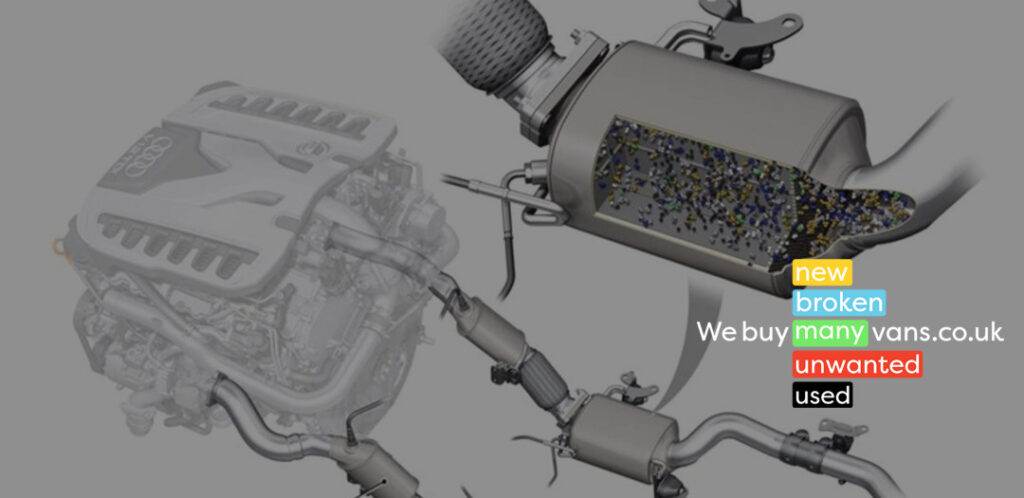
Whether your van has DPF problems or any other mechanical issues, We Buy Many Vans will offer you a fair price for your vehicle.
You won’t have to go through the hassle of finding a buyer or dealing with negotiations – we’ll take care of everything for you. Plus, we’re committed to providing exceptional customer service and making the selling process as smooth and stress-free as possible. So why wait? Contact us today to sell your van and put your DPF problems behind you!
Introduction to DPFs and Their Function
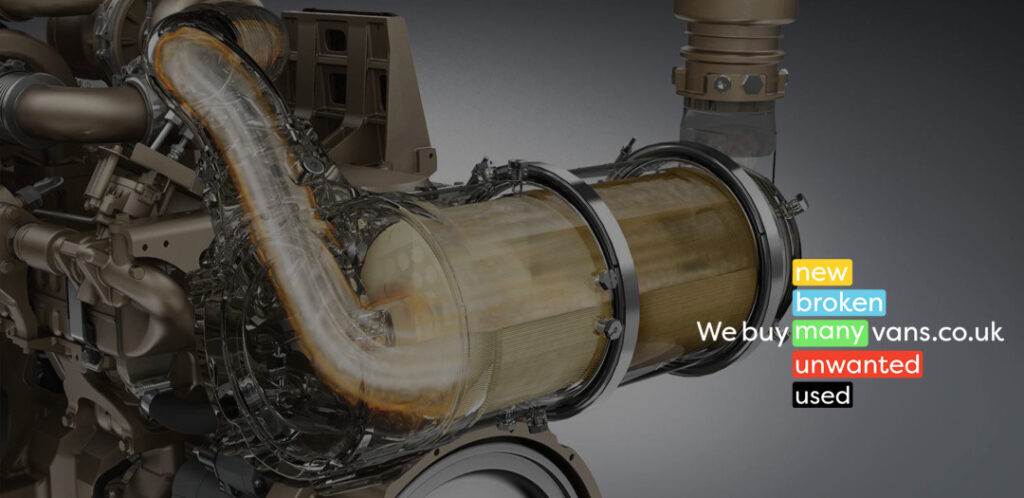
Diesel particulate filters (DPFs) are an essential component in modern diesel vans. They work by trapping and removing harmful particles from the exhaust gases emitted by diesel engines, reducing pollution levels and improving air quality.
However, DPFs can also cause problems for diesel van owners.
If not properly maintained, they can become blocked with soot and other debris, leading to reduced engine performance, increased fuel consumption and potential damage to other components of the vehicle.
To better understand DPF problems and their causes, it’s important to first understand how these filters work. Essentially, as exhaust gases pass through the filter’s porous ceramic structure, tiny particles of soot are trapped within its walls. Over time, this build-up can cause blockages that prevent proper airflow through the filter – resulting in a range of issues for your diesel van.
The Role of Diesel in DPF Problems
Common Van Faults: Diesel particulate filters (DPFs) are an essential component of modern diesel engines. They help to reduce harmful emissions and ensure that vehicles comply with environmental regulations. However, the role of diesel in DPF problems cannot be ignored. Diesel fuel contains a range of impurities, including sulfur and other contaminants that can cause issues with the DPF.
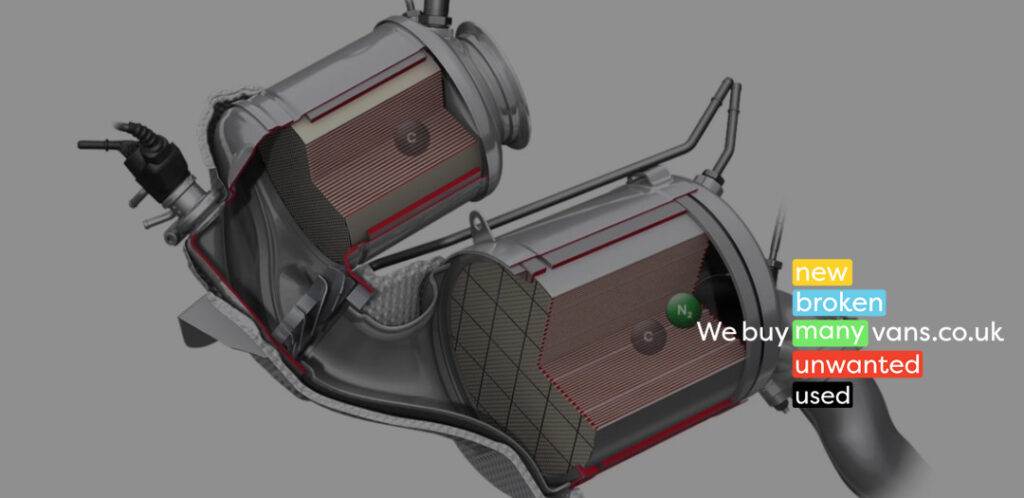
One of the main causes of DPF problems is a buildup of soot within the filter itself. This occurs when the filter becomes clogged due to excessive levels of particulate matter in the exhaust gases. Modern diesel engines are designed to avoid these issues through a process called regeneration, which burns off any trapped particles before they can accumulate in significant quantities.
To avoid issues with your DPF, it’s important to understand how it works and what factors can affect its performance. Regular maintenance is crucial, including regular DPF cleaning and ensuring that your engine is running efficiently at all times. By taking these steps, you can keep your vehicle running smoothly and minimize any potential problems with your DPF over time.
Understanding DPF Problems and Their Causes
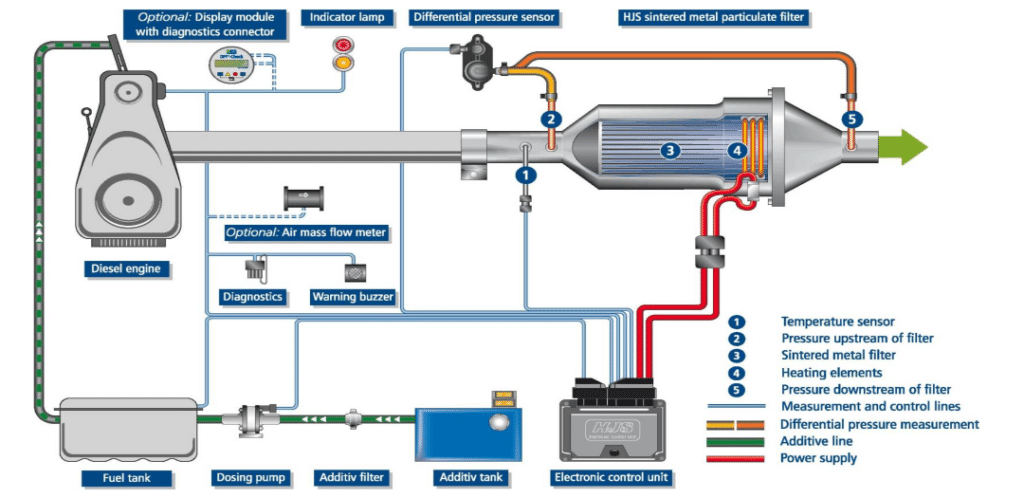
DPFs are designed to capture and store harmful particulate matter emitted by diesel engines. However, over time, these filters can become blocked due to a range of factors such as driving style, engine condition and fuel quality. When this happens, the DPF light on your dashboard will illuminate indicating that the filter needs attention.
One common cause of DPF failure is a lack of regeneration or incomplete regeneration cycles. Regeneration is the process by which accumulated soot in the filter is burned off at high temperatures leaving behind only ash which cannot be removed through passive or active means.
If regenerations do not occur frequently enough or are interrupted prematurely then soot levels will continue to build up leading to eventual clogging.
If your DPF becomes blocked it can cause significant problems for your diesel van including reduced performance and increased emissions. In some cases, you may need to perform forced regeneration or have filter cleaning carried out in order to restore normal function but if this fails then replacing the entire unit could cost upwards of £1000 depending on make and model. As such it’s important to take good care of your DPFs from day one lest things get expensive down the line!
Sell Your Van In Three Easy Steps
Hassle-Free Selling Process
01.
Get a quote
02.
Schedule a pickup
03.
Get paid
How To Avoid DPF Problems
With modern diesel cars & vans being more efficient and environmentally friendly, they also come with complicated systems like DPFS (Diesel Particulate Filters). These filters are designed to capture harmful particles and reduce emissions. However, they can cause issues if not maintained properly.
One of the biggest causes of DPF problems is failing to regenerate. Regeneration is when the filter burns off accumulated soot and ash. If this process isn’t completed regularly, the filter can become clogged and cause the dreaded DPF light to illuminate on your dashboard.
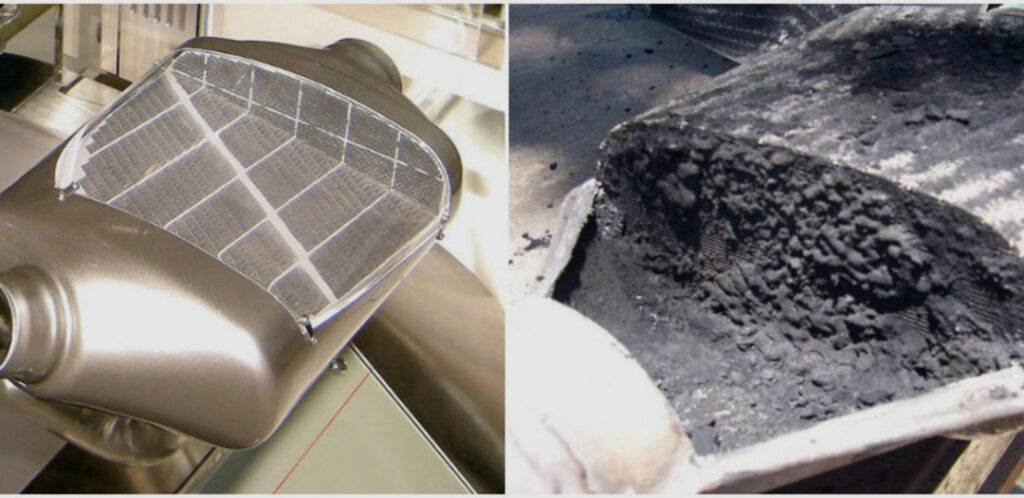
DPF problems can also occur in diesel-powered vans, but there are several steps you can take to avoid them:
Drive at high speeds regularly: As with diesel vans & cars, driving at high speeds on the motorway can help regenerate the DPF in vans. If you only drive short distances at low speeds, consider taking longer trips or driving on the motorway periodically to prevent soot buildup in the DPF.
Use the right diesel fuel: Make sure to use low-sulfur diesel fuel that meets the recommended specifications for your van’s engine. Using the wrong type of diesel fuel can cause the DPF to clog faster.
Avoid idling unnecessarily: Extended idling can cause the DPF to cool down, which can prevent proper regeneration. If you need to idle for more than a few minutes, consider turning off the engine.
Maintain your van properly: Regular maintenance, such as oil changes and fuel filter replacements, can help keep your engine running smoothly and reduce the risk of DPF problems.
Check the DPF system regularly: Keep an eye on the warning lights on your dashboard and have the DPF system checked regularly by a qualified mechanic. Early detection of any problems can prevent them from becoming more serious and expensive to fix.
By following these steps, you can help prevent DPF problems in your diesel-powered van and keep it running smoothly. If you do experience any DPF problems, it’s important to address them promptly to avoid more serious issues with your van’s engine.
How Blocked DPFs Affect Your Diesel Car & Van
Signs of a blocked DPF can be subtle at first, but if left untreated, they can cause serious problems for your diesel car & van. One of the most common symptoms of a blocked filter is reduced engine performance. You may notice that your vehicle struggles to accelerate or maintain its speed, and you may experience jerky gear changes.
While it’s not recommended to continue driving with a blocked DPF, in some cases it may be okay to do so temporarily. However, this should only be done as a last resort and under specific circumstances. For example, if you’re on a long journey and there are no nearby garages where you can have the filter replaced or cleaned.
If your DPF is severely blocked or damaged beyond repair, then replacement will likely be necessary. A new diesel particulate filter can be expensive depending on the make and model of your vehicle. It’s important to have regular maintenance checks carried out on your vehicle to ensure any issues are identified early and resolved before they become more costly problems down the line.
The Expert Opinion: John Cadogan and Auto Expert on DPFs
John Cadogan, a renowned automotive expert and founder of Auto Expert, warns that DPF problems have become increasingly common in modern diesel vans and cars. The exhaust emissions from diesel engines contain particulate matter, which is trapped by DPFs to reduce harmful emissions. However, if the DPF warning light comes on or stays on for an extended period of time, it may indicate a problem with the system.
Cadogan explains that DPFs can become blocked due to various reasons such as short trips at low speeds (below 40mph), lack of maintenance or failure to regenerate properly. When a DPF becomes clogged, it can cause serious damage to the engine and lead to costly repairs. Therefore, it’s important for drivers to understand how their DPFs work and take necessary measures to prevent potential issues.
To keep your modern diesel van running smoothly and avoid costly repairs associated with faulty emission systems like DPFs; Cadogan suggests regular maintenance including active regeneration where possible or passive regeneration when driving conditions allow. Additionally, he recommends getting your vehicle checked out by a professional if you see any signs of trouble such as the infamous ‘DPF light’.
DPF Cleaning: What It Is and Why It's Important
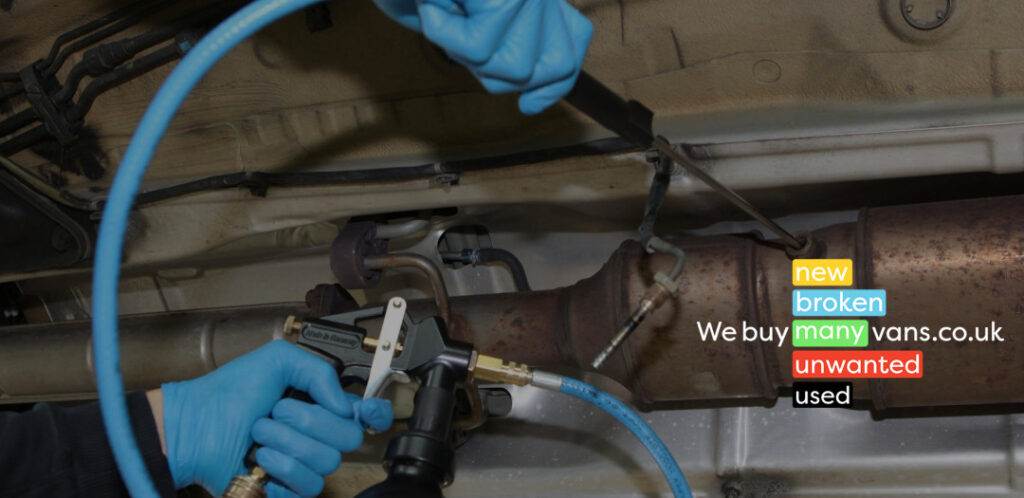
DPF cleaning is an essential part of maintaining your diesel van’s performance. The DPF, or diesel particulate filter, is designed to capture soot and other harmful particles from the exhaust gases before they are released into the environment. Over time, however, these particles can accumulate and cause a blocked filter which can lead to DPF issues.
To avoid DPF problems caused by a blocked filter, it’s important to have your DPF cleaned regularly. This process involves removing the filter from your van’s exhaust system and using specialized equipment to clean it thoroughly. There are several methods for DPF cleaning including ultrasonic cleaning and thermal regeneration.
Forced regeneration is another method that can be used to prevent DPF issues caused by a blocked filter. This process involves using heat generated by the engine to burn off any accumulated soot in the DPF. It’s important to note that forced regeneration doesn’t always work and if you’re experiencing frequent DPF regen cycles then you should consult with your van manufacturer or mechanic as there may be underlying issues causing this problem. Overall, understanding everything you need to know about DPF cleaning will help you avoid issues with your van’s performance while also reducing harmful emissions into our environment
Regeneration: The Key to Keeping Your DPF Functioning Properly
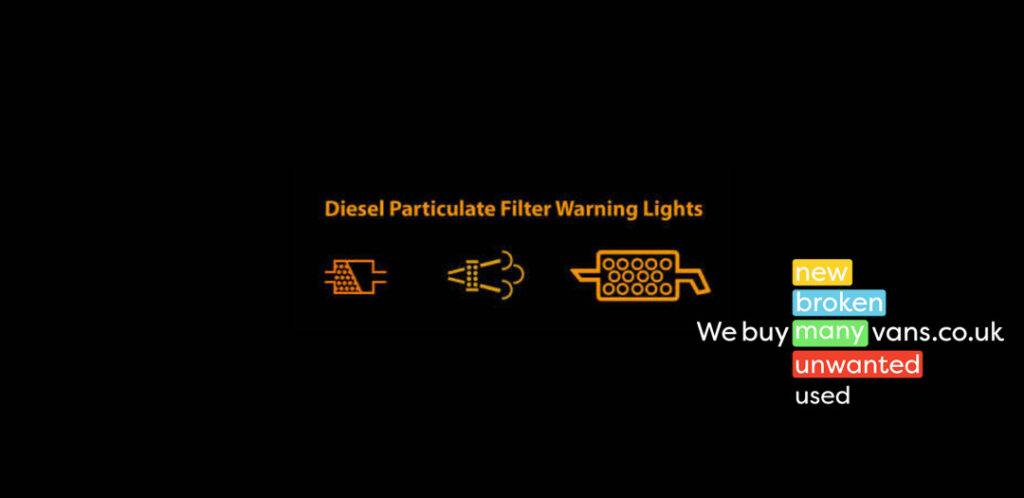
The DPF is a filter that captures harmful particles from the exhaust of diesel vans, helping to reduce emissions. However, over time these particles build up and need to be cleaned out through a process called regeneration. This process involves raising the temperature of the exhaust by injecting extra fuel into the engine, which then burns in the DPF and clears any particles trapped in the filter.
If your driving style doesn’t allow for enough high-speed driving or if you frequently drive short distances, your DPF may not be able to regenerate properly. This can lead to it becoming clogged and potentially needing replacement at an expensive cost. To avoid this issue, it’s important to understand how often your particular van needs to undergo regeneration and adjust your driving habits accordingly.
Forced regeneration is also an option if you notice that your DPF is becoming clogged or isn’t regenerating as it should. In this process, a mechanic will use special equipment to raise the temperature of the exhaust and clear out any blockages manually. While this may seem like an easy solution compared to replacing the entire DPF system, it’s still important to address any underlying issues that are causing problems with regeneration in order to prevent further damage or costly repairs down the line.
Forced Regeneration: When It's Needed and How It's Done

Forced regeneration is a process that can help clean a DPF filter and prevent potential problems. When the filter reaches its maximum capacity, it needs to be cleaned or replaced. If not addressed, signs of a blocked DPF can occur such as reduced power, increased fuel consumption and even engine warning lights.
To perform forced regeneration, the engine control unit (ECU) instructs the diesel engine to burn off the soot collected in the DPF filter. This process typically takes around 20-30 minutes at high speeds on motorways or open roads where there is minimal traffic. It’s important to note that during this time, it’s ok to drive your diesel with a DPF fitted.
If forced regeneration doesn’t work or if you have experienced multiple instances of DPF failure, then replacement may be necessary.
A new diesel particulate filter could cost anywhere between £1,000-£3,500 depending on make and model of van and garage labour costs involved.
However, before considering replacing or removing your DPF filter altogether which can lead to legal issues and fines up to £1000 for non-compliance with government regulations relating to emissions standards in vehicles – try cleaning it first using specialised equipment designed specifically for this purpose.
In summary: Forced regeneration is an essential process that helps maintain your vehicle’s performance by ensuring its Diesel Particulate Filter remains clean from build-up soot particles over time; however if problems persist despite attempts at cleaning through forced regenerations alone then consider replacing with a new DPF rather than risking damage due lack thereof altogether!
DPF Replacement Cost: Factors That Affect the Price
When it comes to replacing a DPF, the cost can vary depending on several factors. One of the main factors is whether you need a filter replacement or just a cleaning service. Symptoms of a blocked DPF include reduced power and acceleration, increased fuel consumption and black smoke emitting from the exhaust. If these symptoms persist after attempting to clear the warning light by driving for 10 minutes at speeds above 40mph, it may be necessary to replace or clean your DPF.
Another factor that affects the cost of DPF replacement is whether your van may require forced regeneration. This process involves using specialized equipment to initiate a regeneration cycle and clear any blockages in the filter. If this does not work, then forced regeneration may be required which will increase costs further.
It’s important to keep in mind that neglecting your DPF can cause problems with other parts of your engine as well as reduce emissions standards compliance. The cost for replacing or cleaning your DPF generally ranges from £500-£1000 depending on make and model but could potentially reach up to £2000 if additional repairs are needed due to damage caused by excessive soot buildup over time (usually between 5-10 years). By keeping up with regular maintenance such as air and fuel filter changes, you can help prevent expensive repairs down the line while also improving overall vehicle performance.
The Pros and Cons of Removing a DPF
Removing a DPF can have both advantages and disadvantages. One of the main pros is that it can improve fuel economy, especially when driving in low-speed or stop-and-go traffic. This is because without the DPF, there is less backpressure on the engine which means it doesn’t need to work as hard to push out exhaust gases.
However, removing a DPF also has some significant cons. Firstly, it’s illegal in most countries and can result in hefty fines if caught. Secondly, by removing the filter you are allowing more particulate matter into the environment which contributes to air pollution. Lastly, even though removing a DPF may seem like an easy fix for warning lights indicating blocked filters due to incomplete regeneration cycles; this could actually cause further damage to your van’s engine over time.
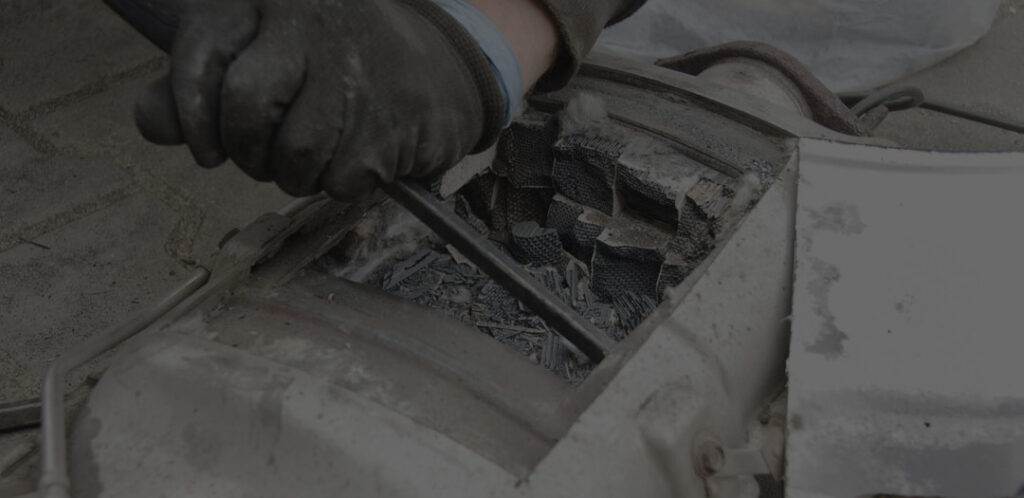
It’s important to note that regeneration occurs naturally during long motorway drives where temperatures are high enough for soot particles within the filter to burn off completely.
However, if you’re driving mainly around town or short distances at low speeds with a low fuel level then it may not be possible for your van’s system to complete its cycle and clear any warning messages without forced regeneration methods such as raising the temperature through longer periods of highway driving or using special equipment from mechanics who offer this service at their garages typically taking 30 minutes or so at speeds above 40mph while ensuring no sudden stops occur since doing so would cause the engine management light (EML) to come on again immediately afterwards due increased amount of soot produced by idling engines emitting unburnt fuel in order keep them running smoothly.
DPF Problems Frequently Asked Questions
DPF stands for Diesel Particulate Filter. It is an emissions control device that captures and stores soot particles emitted by diesel engines.
DPFs can become blocked when the soot particles it collects exceed its storage capacity. This can occur due to short trips, low engine temperatures, and poor fuel quality.
Blocked DPFs can lead to decreased engine performance, increased fuel consumption, and eventually engine damage if left untreated.
Yes, it is possible to clean a blocked DPF through a process called regeneration, which burns off the soot particles.
Forced regeneration is a process where a mechanic uses specialized equipment to increase the temperature of the DPF and burn off the accumulated soot particles.
The cost of replacing a DPF varies depending on the make and model of the vehicle and the severity of the damage. It can range from a few hundred to several thousand pounds.
Pros include improved engine performance and fuel consumption, while cons include increased emissions and potential legal issues. It is also important to note that removing a DPF is illegal in many countries.
Sell Your Van Today to We Buy Many Vans
In conclusion, coping with DPF problems can be a real headache for van owners, considering the average lifespan of the filter and the potential consequences of driving with a faulty one.
However, if you are facing these issues and looking for a solution, We Buy Many Vans can help. We understand that restoring your van’s optimal performance is important to you, which is why we offer a hassle-free solution: you can sell your van to us, regardless of its condition.
So, don’t let DPF problems hold you back any longer. Contact us today and let us take care of everything!
Van Troubleshooting Guide: Common Problems from Fuel Pumps to MOT Failures
Here’s the list of van problems in order from most common to least common:
- Fuel Pump Problems
- ECU Problems
- Fuel Injector Problems
- Turbo Engine Problems
- DPF Problems
- Wiring Loom Problems
- Oil Pressure Problems
- Differential Problems
- MOT Failure Vans
- Timing Chain Problems
- Engine Warning Light
- Gearbox Failure
Please note that the order may vary depending on various factors such as the specific van model, maintenance practices, and driving conditions. This list is a general representation of common van problems but may not reflect the exact frequency of occurrence in all cases.